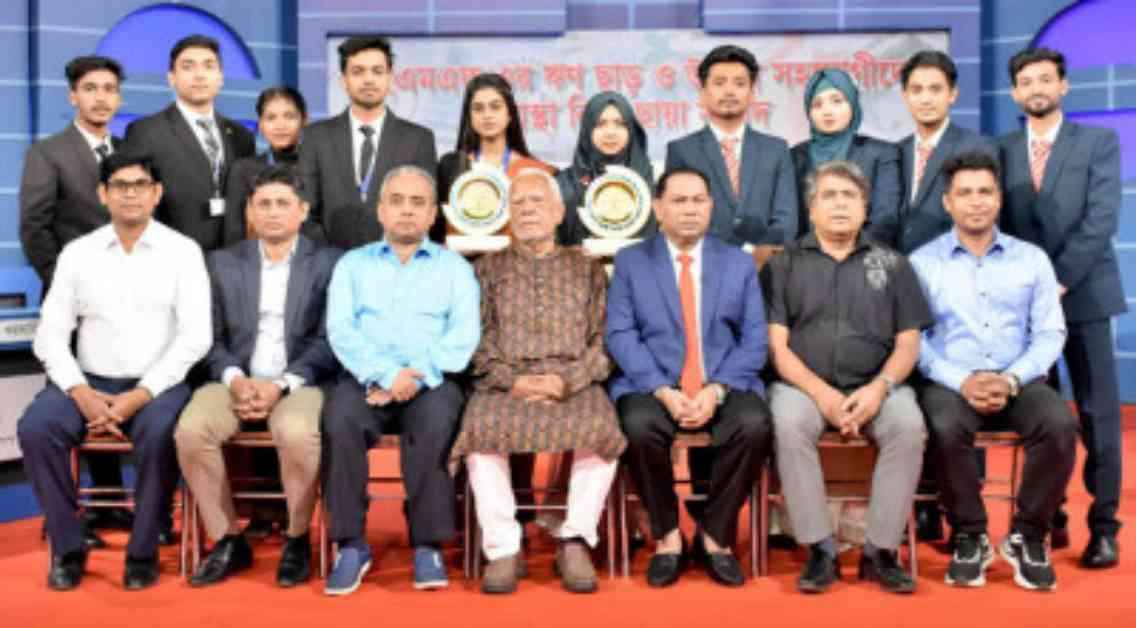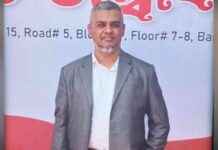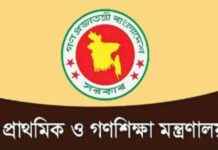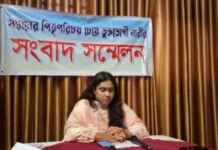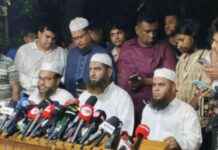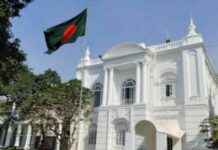Dhaka: Investment Corporation of Bangladesh (ICB) Chairman Professor Abu Ahmed has said, according to IMF conditions, we hope the value of the dollar will not depreciate in a market-based manner. However, we must remain vigilant so that the mafia circle cannot manipulate the dollar reserves.
Previously, the country was under the rule of the mafia economy. Now, we hope that era has come to an end.
On Saturday (May 17), during a debate organized by Debate for Democracy on the IMF loan waiver and development partners’ trust at the National Press Club, he expressed these views. The event was chaired by the chairman of the organizing institution Debate for Democracy, Hasan Ahmed Choudhury Kiran.
Professor Abu Ahmed, Chairman of ICB, said that dividing corruption and tax management into two parts will be beneficial. If there is a logical claim, it can be presented to the government, but if such opposition is for personal gain, it will be detrimental. This kind of reform in revenue management will be fruitful in the economy. Many countries around the world have such revenue structures. The previous government left us with a loan of $103 billion. Currently, we are repaying an average of two to two and a half billion dollars in loans per year. The rate of repayment of this loan will increase in the future. According to the conditions of the IMF, we hope the value of the dollar will not depreciate in a market-based manner. However, we must remain vigilant so that the mafia circle cannot manipulate the dollar reserves. Previously, the country was under the rule of the mafia economy. Now, we hope that era has come to an end. Several banks, including the best Islamic Bank in the eyes, have been looted. Thieves and robbers have embezzled the depositors’ money in foreign currencies in these banks and smuggled it abroad. This has left the whole nation, including Bangladesh Bank, in a state of bankruptcy. Returning the smuggled money will be a challenge.
Chairman of Debate for Democracy, Hasan Ahmed Choudhury Kiran, said, symbolically, the IMF loan works as a certificate. That is, when this loan is obtained, other development partners are encouraged to provide loans, both formal and informal, along with budget support. However, many times, if only the IMF conditions are followed, development partners may not be encouraged to provide loans. Without maintaining cleanliness, efficiency, accountability, preventing corruption, good governance, establishing democracy, and voting rights in the financial sector, development partners will not be interested in providing loans.
He further stated that in compliance with IMF loan conditions, various obligations must be waived as part of reform, which is often seen as a hindrance to public interest. It is not appropriate to accept advice that only complies with IMF loan conditions, which may be contrary to the country and public interest. When the previous government took this loan from the IMF to manage the country’s economy, the country’s assets were looted, and billions of dollars were smuggled abroad by the beneficiaries of the previous government. At that time, on one hand, the country’s economy was in a fragile state, and on the other hand, through the nexus of bureaucrats, businessmen, and politicians, mansions, cars, business, commerce, and wealth were created in various countries around the world.
He said that in the previous government’s rule, most of the money was smuggled through trade-based money laundering. Through over-invoicing of furnaces, coal, scrap vessels, fertilizers, and other goods, nearly $16 billion has been smuggled abroad annually. Despite having the capacity charge, the previous government has paid hundreds of crores of taka to domestic and foreign institutions without receiving any electricity, which has been smuggled in various ways abroad.
In the event ‘Development Partners will gain confidence in waiving the IMF loan’ organized by Presidency University at the National Press Club, the debaters from Shahid Sohrawardi College emerged victorious.
The judges in the competition were Professor Abu Mohammad Rais, Dr. S. M. Morshed, journalist Ikbal Ahsan, journalist Sushant Sinha, and journalist Arifuzzaman Mamun.
At the end of the competition, the participating team was awarded a trophy, crest, and certificate.
